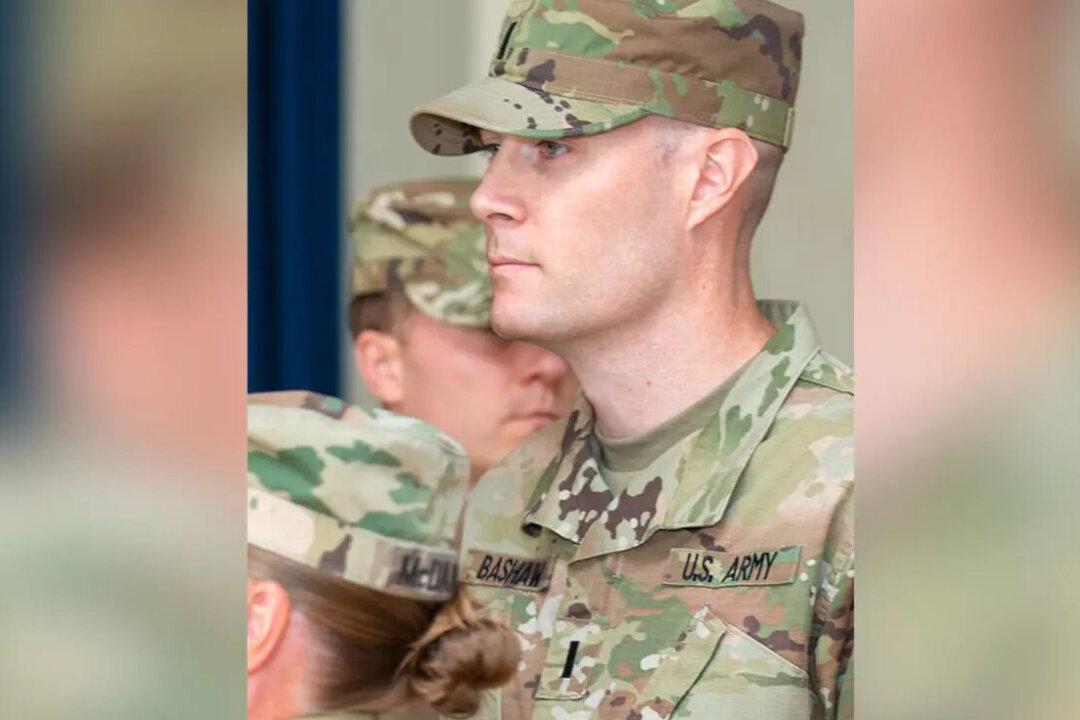A medical Army officer who discovered a sudden increase in disease coinciding with reports of side effects alongside COVID-19 vaccines—which the Army has dismissed as a data glitch—said he faces involuntary separation after being convicted but not punished for disobeying COVID-19 protocol.
In January 2022, First Lt. Mark Bashaw, a preventive medicine officer at the Army, started noticing some “alarming signals” within the defense epidemiological database.






